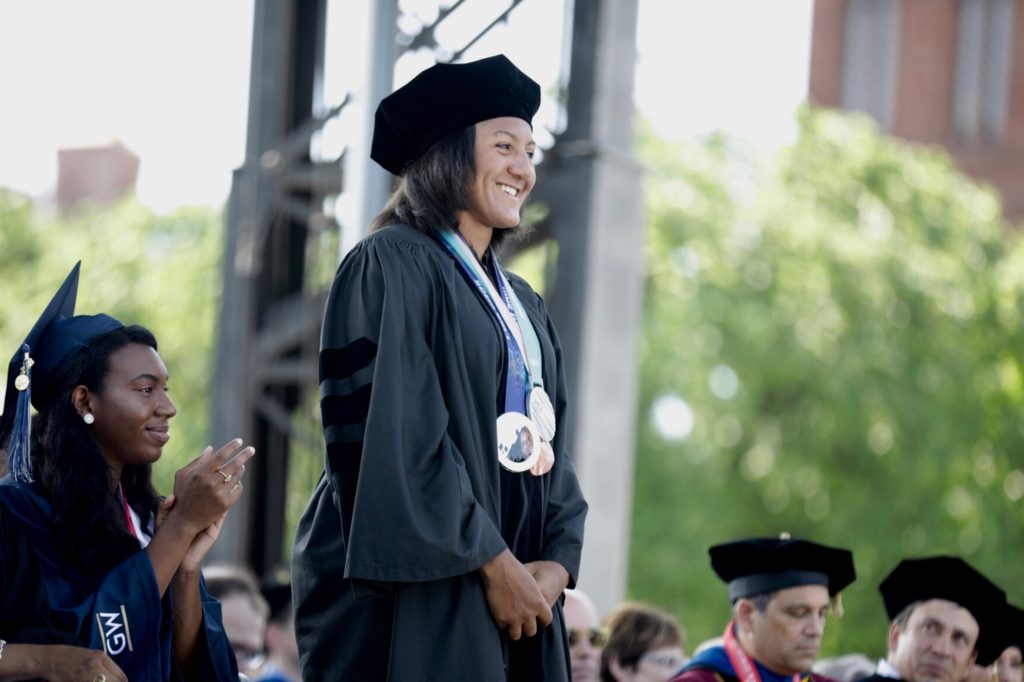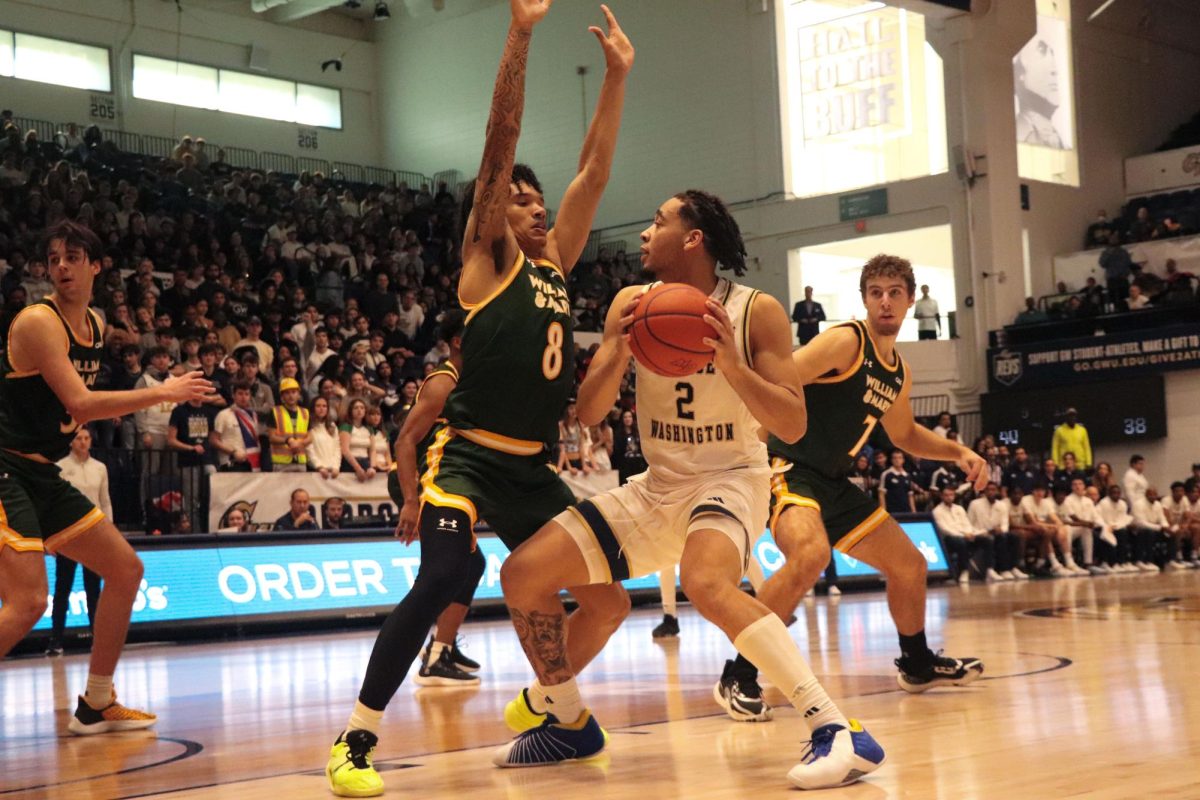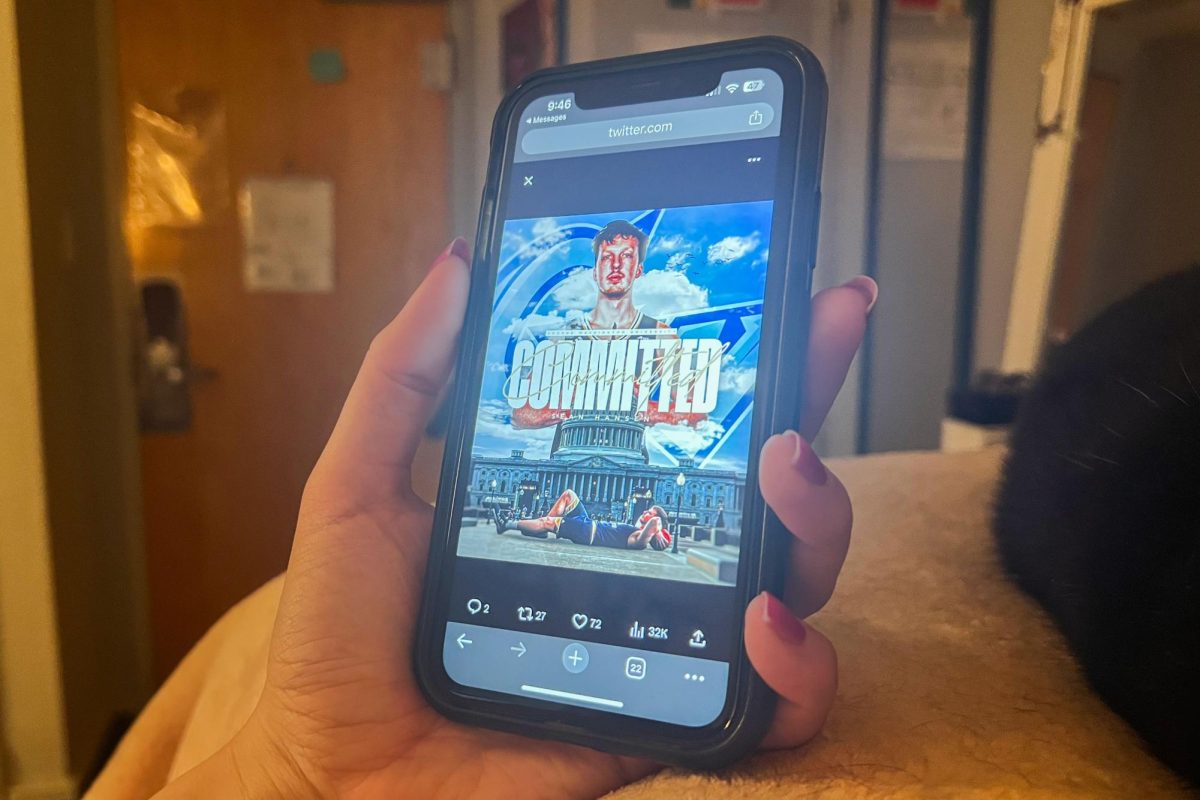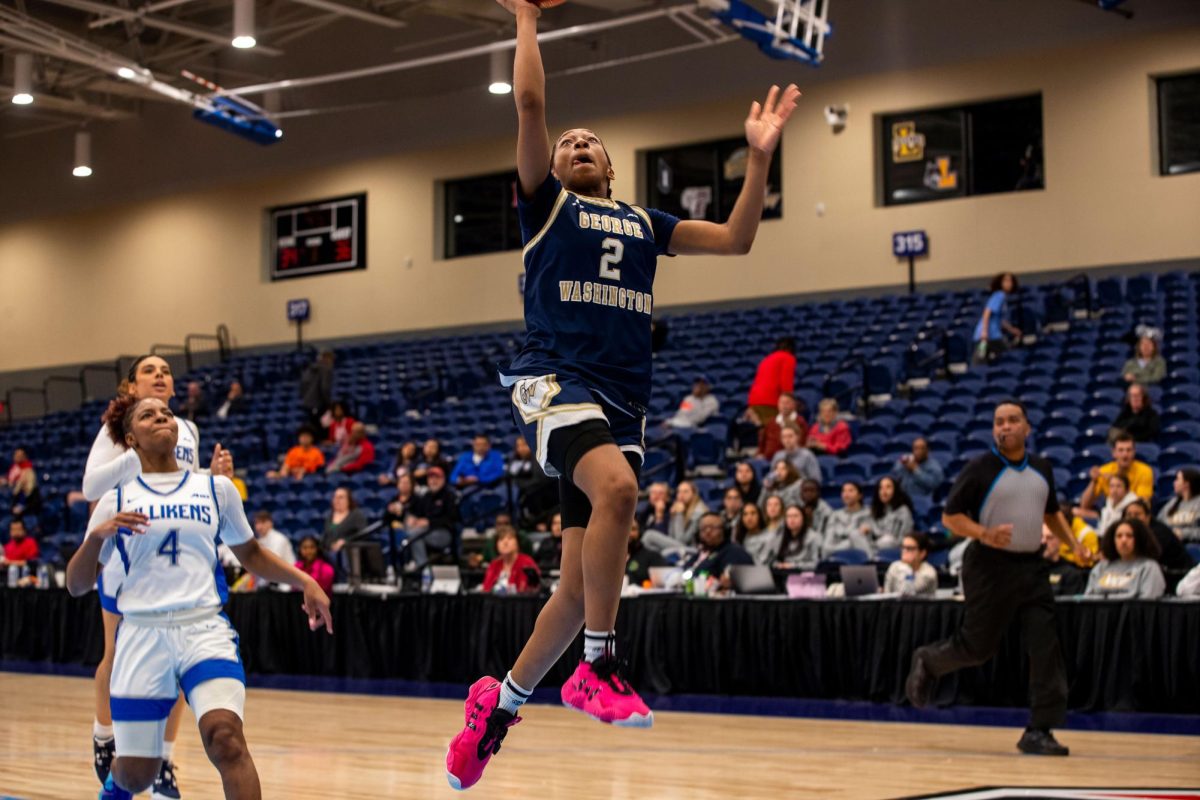Three-time Olympic medalist, two-time World Champion and GW alumna bobsledder Elana Meyers Taylor received an honorary degree at Commencement Sunday.
Meyers Taylor was a member of GW’s first softball team and holds the program record for highest single-season batting average at .414 in the 2006 season.
Before she took the stage to receive an honorary degree from her alma mater, Meyers Taylor sat down with The Hatchet to discuss her start at GW and what she thinks about while toeing the start line at the Olympics.
How do you feel about receiving your honorary degree this weekend?
Elana Meyers Taylor: It is an incredible honor. I’m big into education, and I speak to kids about the importance of education. Obviously, I have a really good history with GW and degrees in the past, so being able to be honored in this way – it means everything. And it says a lot. I don’t know if a lot of athletes can say their university honored them in this kind of way, so I am speechless over it, it’s pretty cool.
How did your time as a student and an athlete at GW help you in your career?
EMT: I had great professors who really supported me and all my academic goals and achievements, which was pretty difficult considering the difficulties of a softball schedule where we’re on the road multiple times throughout the week. As far as the athletics side, I think the biggest thing it taught me was perseverance. I was on the first GW softball team, and going through that process with four coaches in five years, it was a struggle at times, but it taught me how to be a leader and it taught me how to be a good teammate, too.
When you were trying out for the bobsled team and training for it, did you expect it to lead to where it has?
EMT: I had no idea where it would lead. I wanted to go to the Olympics, obviously. That was my dream when I was at GW, to go to the Olympics to represent my country. I was thinking it would be softball, but then that was not working out. So, to have this new opportunity, I threw myself head first into it. But when I first got up to Lake Placid in New York for that tryout, it was freezing cold, I was not expecting it at all, and I didn’t even really own a winter coat. I didn’t have the proper gear, so to be out there and trying to think of making the Olympic team was the farthest thing from my mind. The first thing I did was try to figure out how to stay warm, the second thing was try to figure out how to push a bobsled and then third I was like, “Well maybe I can make the Olympic team as well.”
What do you remember most about playing at GW?
EMT: We had a game against Rhode Island my senior year, and it was that game that was going to determine whether or not we were making it to the Atlantic 10 Championships. In that series, I was able to get my 200th hit, and I was able to hit a home run – a grand slam actually – and bunt single home the same series, which was a pretty cool feeling. But the biggest thing I took from that experience is that when there’s pressure on the line, I actually enjoy those moments. I’ve been able to use that experience in my bobsled career. When the stakes are the highest, that’s when you have an opportunity to shine, and it works so much in bobsled, it works in life and all these other aspects. It’s those big moments that create exciting opportunities.
When you’re about to do a run and you know it’s one of those big moments, what are you thinking about and focusing on at the top of the course?
EMT: Absolutely nothing. When I’m walking to the line, I have these nerves, and I try to turn them into energy because I believe nerves are a good thing. You’re nervous because it means something to you, so I try to use that nervous energy to fuel me. And then when I step to the line, I try to take in the moment. A lot of athletes will say they can’t hear what’s going on, but I can hear everything that’s going on because I’m just really trying to take in the energy from the crowd. Right before my last run at the Olympics, I actually could hear my mom screaming for me, because that’s the one voice out of the whole crowd screaming “USA” that I could actually pick out. I’m just feeling everything that’s going on and allowing the crowd’s energy mix with my nervousness to fuel me down the hill faster.
How are you training for the next Olympics?
EMT: Definitely continuing to work on the physical aspects of the bobsled and continuing to work on the mental side. Every single Olympics I’ve been to has been completely different in terms of how I’ve gotten to where I’ve gotten, even if some of the outcomes are the same. So four years is going to be completely different, too.
Are you excited to see softball back in the Olympics?
EMT: Oh I’m super excited, I can’t wait. I’m going to swing a bat and see if I have any skills left in me. I have no idea what that will look like, but I figured it was always my dream to compete in the Olympics in softball, so I figured I’ll step in the batting cage and see what kind of skills I got left.
Given your athletic experience at the Olympics and your education, what advice would you give to this weekend’s graduates, especially the student athletes, as they go into their next chapter?
EMT: The biggest advice I would give to a graduating student athlete, or any student, is just follow your passion. At the end of the day if you find what you truly love, you’re going to be able to make money doing it. That’s what took hold for me and that’s what I think needs to take hold for graduating students. Follow passion first and the money will come. Bobsled is not typically a sport where you make a lot of money – or where you make any money. I’ve worked throughout my bobsled career too, but at the same time, I’ve been able to make money bobsledding because I’m so passionate about it and because I go out there and share my passion with the world.





